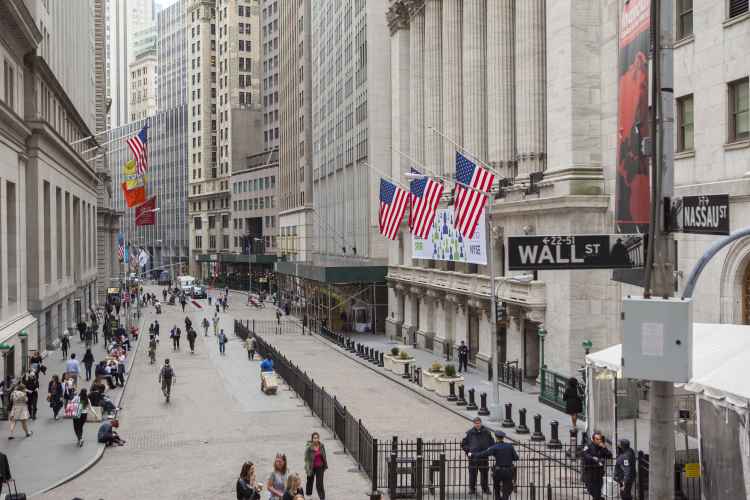Rolling back Dodd Frank rules
May 23, 2018 | Expert Insights

In May 2018, Washington lawmakers voted to pass a bill to roll back on majority of the Dodd Frank banking rules that had been instated post the financial crisis of 2008. It would negate much of the oversight that had been introduced on all but the largest banks in the country.
Background
Post the September 11, 2001 attacks, the US Federal Reserve stimulated the struggling US economy by cutting interest rates to historically low levels. This resulted in a boom in the real estate market. Lenders began to extend mortgages to millions who couldn’t qualify for traditional bank loans. Housing prices, therefore, peaked in early 2006 and began to decline in 2006 and 2007. Many of the subprime mortgages were affordable in the beginning but rates spiked in 2007. In the meltdown that occurred in the wake of this crisis, several banks in Wall Street had to declare bankruptcies and a global recession followed. It is considered one of the worst financial crises.
The term Dodd-Frank refers to a comprehensive and complicated piece of financial regulation born out of the Great Recession of 2008. It was designed to ensure that a financial crisis like that in 2008 won't happen again. As such, it sought to attack the principle problem that policymakers believed had caused the crisis in the first place - the growth and proliferation of too-big-to-fail banks. The Act established the Consumer Financial Protection Bureau (CFPB) which from inception to April 2017 had "returned almost $12 billion to 29 million consumers and imposed about $600 million in civil penalties."
In the recent years, the world economy has continued showing signs of global recovery. The US economy has also grown considerably in the last two years. It expanded at an annual pace of 3% during the three months to the end of September 2017. This growth rate was higher than expected by experts. In the previous quarter, the US GDP grew at an annual pace of 3.1%. On a year-on-year basis, GDP was up 2.3% according to estimates.
Analysis
US President Donald Trump has previously called for “dismantling” Dodd-Frank and loosening lending restrictions imposed by the 2010 law signed by former President Obama.
On June 8, 2017, the Republican-led House passed the Financial CHOICE Act. This act sought to roll back many of the provisions of Dodd–Frank. In June 2017, it was reported that the Senate was crafting its own reform bill. On March 14, 2018, the US Senate passed a bill, easing financial regulations and reducing oversight for banks with assets below $250 billion.
In May 2018, the US House approved a sweeping overhaul of bank regulations. Washington lawmakers will now send President Trump a bill that will relax much of the rules that were introduced as a result of the financial crisis and would negate the Dodd Frank act. Now, there will be lesser oversight requirements for banks with less than $250bn in assets. However, the larger banks in Wall Street have expressed concerns. The bill will not ease the regulation in place to keep in check the nation’s largest lenders.
Large banks sought to raise that oversight threshold to $500 billion or adopt a more flexible approach to big bank scrutiny. “We fought anything that would be added to the bill for the mega banks that would jeopardize the effort,” said Paul Merski, executive vice president at the Independent Community Bankers of America (ICBA), the main small bank lobby group, whose members have around $430 million in assets on average. “We managed to get this legislation done in spite of the mega banks.”
"The House just voted to free our economy from overregulation," Paul Ryan, the House Speaker and Wisconsin Republican, wrote on Twitter after the vote. "Main Street banks are engines of growth, and now it will be easier for these banks to lend to #SmallBiz and families."
Counterpoint
Critics of the bill have argued that any lax in oversight could once again lead US down the road to another financial crisis. They note that it was lack of oversight that resulted in the subprime mortgage crisis in the first place. Some have also highlighted that Wall Street does not require any help from Washington presently as banks are already reported record profits this year.
“The bill would raise the asset threshold at which banks would be subject to enhanced supervision by regulators, weaken stress tests and capital requirements for big banks, undermine critical mortgage protections, and exempt 85 percent of depository institutions from reporting important Home Mortgage Disclosure Act data,” Representative Maxine Waters of California, the top Democrat on the House Financial Services Committee, said in a statement before the vote. “I’m all for helping community banks and credit unions but this bill goes way beyond that and includes massive giveaways to Wall Street.”
Assessment
Our assessment is that the American economy would profit monetarily through the latest development. Smaller banks would find it easier to conduct business and it eases mortgage loan data reporting requirements for the overwhelming majority of banks. However, there are concerns that the lack of supervision over Wall Street could once again pave the way for another financial crisis.








Comments